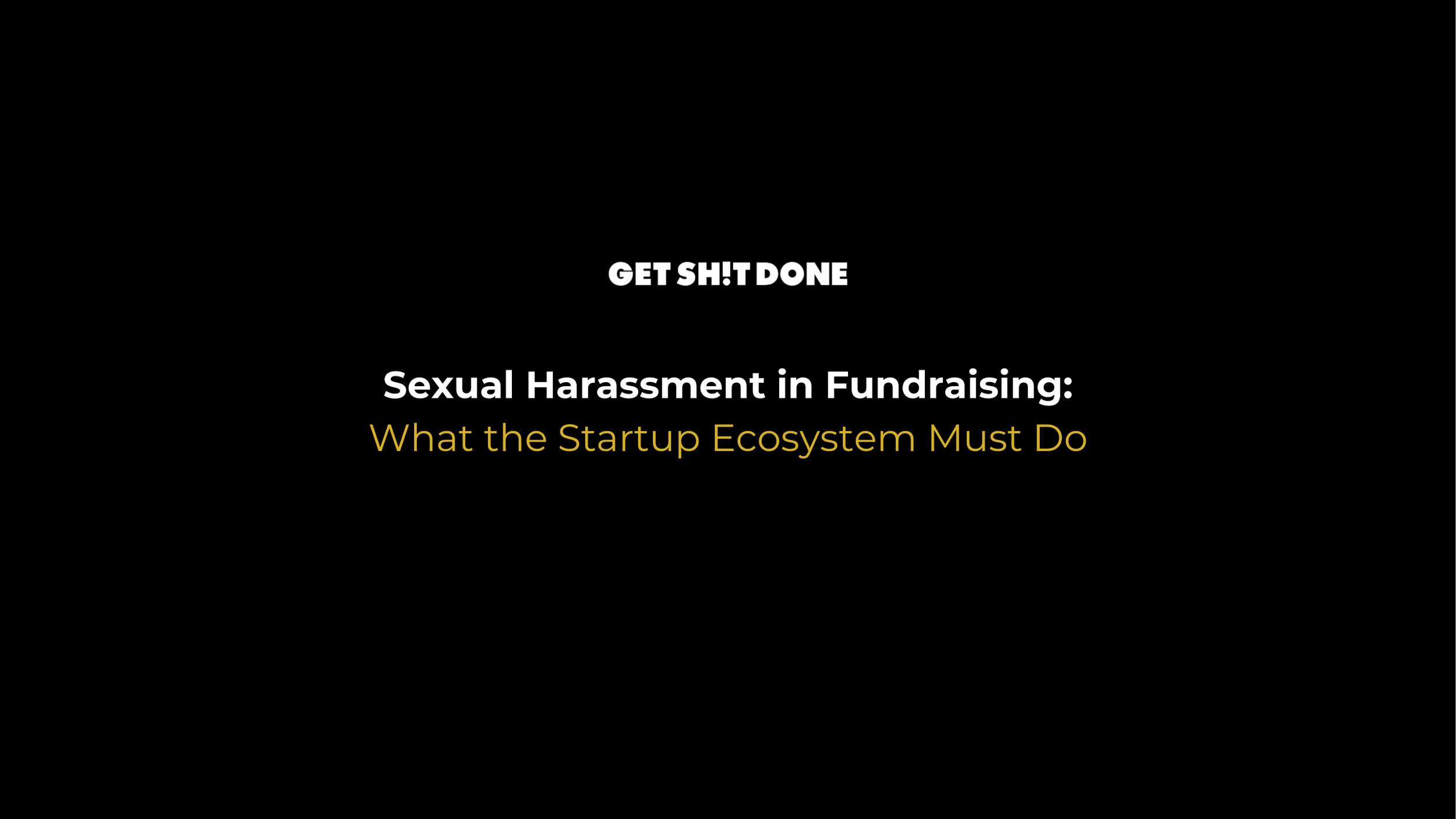
Sexual Harassment While Fundraising: What the Ecosystem Must Own
It’s not on founders to fix harassment.
Yet for too long, when women and underestimated founders speak out about being harassed while raising capital, the response has been: “What could you have done differently?”
That framing is broken. Founders are already carrying the weight of building companies, leading teams, and making payroll. They should not also carry the burden of policing predatory behavior in investor rooms.
This guide is a call to action for the entire startup ecosystem: investors, LPs, boards, accelerators, and founder communities.
Why This Guide Exists
Sexual harassment in fundraising is one of entrepreneurship’s worst-kept secrets. It doesn’t just happen in “bro-heavy” VC spaces. It happens in “impact” funds, angel groups, and rooms that claim to support women and underserved founders. And it thrives in silence.
We created this guide to:
Break that silence by naming the problem.
Shift responsibility from founders to the ecosystem.
Provide concrete actions every group must take to create safer, more accountable spaces.
Why Sexual Harassment in Startup Fundraising Matters
For many founders, raising capital is a matter of survival like making payroll, keeping the lights on, or reaching the next level. Predatory investors exploit that urgency. The result? Deals lost, confidence shaken, and an invisible tax placed on women entrepreneurs and other underestimated founders.
By putting the burden back on the ecosystem—investors, LPs, accelerators, and boards - we can stop treating harassment as a “founder problem” and start addressing it as a systemic failure.
What’s Inside & Who This Guide Is For
A Framework for Change
Practical actions investors, LPs, and accelerators can implement now.
Role-Specific Roadmaps
Investors: How to set zero-tolerance standards, create safe reporting, and stop passing “known” offenders as if it’s just part of the game.
Fellow Founders: How to move beyond whisper networks and build/share “safe lists” of aligned investors.
LPs and Boards: Why you must hold funds accountable for culture and conduct—not just returns—and the questions you should be asking.
Accelerators, Incubators, Communities: How to design fundraising pathways that are structured, transparent, and safe for founders.
